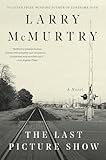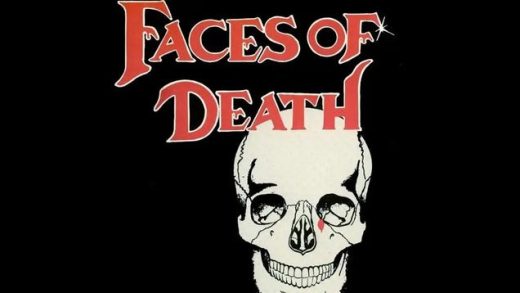Longing is a mood you always bump into with Larry McMurtry. The first of his novels that I read was Leaving Cheyenne, which is one long heartache on the part of two cowboys for Molly Taylor and her yearning for companionship and understanding. McMurtry wrote a sentence that I figured would stay with me the rest of my life: “A woman’s love is like the morning dew—it’s just as likely to settle on a horse turd as a rose.” So true, I thought, as I was nineteen and loveless.

 McMurtry worked a seam in those early novels, the fraying edge of the Western frontier, a way of life that was at once antiquated and grudgingly modern. He was ruddering against the idea of the great Texas myth, which glorified a way of life that was mostly stultifying and mean. The dust of the cattle drives was still in the air, and the rumble of a gusher lingered in memory, but the residue of the myth was as vacuous as a discarded faith. McMurtry’s characters felt trapped by life, whether they were ranchers or suburbanites or the residents of a despairing village on the precipice of extinction, such as his native Archer City, the fictional Thalia of The Last Picture Show. “The aridity of the small west Texas towns was not all a matter of unforgiving skies, baking heat, and rainlessness,” he wrote in the autobiographical Walter Benjamin at the Dairy Queen. “The drought in those towns was social, as well as climatic.” The title of that extended essay was as apt a summation of the confluences that made up Larry McMurtry as we are likely to find.
McMurtry worked a seam in those early novels, the fraying edge of the Western frontier, a way of life that was at once antiquated and grudgingly modern. He was ruddering against the idea of the great Texas myth, which glorified a way of life that was mostly stultifying and mean. The dust of the cattle drives was still in the air, and the rumble of a gusher lingered in memory, but the residue of the myth was as vacuous as a discarded faith. McMurtry’s characters felt trapped by life, whether they were ranchers or suburbanites or the residents of a despairing village on the precipice of extinction, such as his native Archer City, the fictional Thalia of The Last Picture Show. “The aridity of the small west Texas towns was not all a matter of unforgiving skies, baking heat, and rainlessness,” he wrote in the autobiographical Walter Benjamin at the Dairy Queen. “The drought in those towns was social, as well as climatic.” The title of that extended essay was as apt a summation of the confluences that made up Larry McMurtry as we are likely to find.
 I ran into Larry in 1997 at a party in Austin. He was standing alone under a live oak in the broad front yard of the governor’s mansion. He was a little forbidding, to be honest, with those hawkish eyes behind big black cheap-looking glasses, which were as much a part of his image as they were for Woody Allen, only on Larry they added to the air of scholarly disdain. I suppose all Texas writers were a little anxious around him, as he would periodically pee on the entire enterprise with unsettling force and accuracy. I had met him once before at a meeting of the Texas Institute of Letters, after Lonesome Dove had established him in the pantheon of great American writers. His remarks about the burdens of fame elicited little sympathy among those who had felt the lash of his judgment.
I ran into Larry in 1997 at a party in Austin. He was standing alone under a live oak in the broad front yard of the governor’s mansion. He was a little forbidding, to be honest, with those hawkish eyes behind big black cheap-looking glasses, which were as much a part of his image as they were for Woody Allen, only on Larry they added to the air of scholarly disdain. I suppose all Texas writers were a little anxious around him, as he would periodically pee on the entire enterprise with unsettling force and accuracy. I had met him once before at a meeting of the Texas Institute of Letters, after Lonesome Dove had established him in the pantheon of great American writers. His remarks about the burdens of fame elicited little sympathy among those who had felt the lash of his judgment.
He was cordial enough as we chatted under the oak, but he brightened when his attractive and interesting partner, Diana Ossana, joined us. She seemed amused by his morose frame of mind. I gathered that women were extremely important to him, serving as psychological life jackets on the ocean of depression that always seemed close at hand.
 Diana was in Austin to judge screenplays for a writers’ festival that was underway. As it happened, she and Larry were just beginning to work together on the script for Brokeback Mountain, which would be such a narrative triumph. It was a perfect McMurtry project, a recasting of the cowboy legend through the lens of two men who fall in love. The life they might have led together would never happen; they were captives to the conventions of the culture they lived in, like so many McMurtry heroes.
Diana was in Austin to judge screenplays for a writers’ festival that was underway. As it happened, she and Larry were just beginning to work together on the script for Brokeback Mountain, which would be such a narrative triumph. It was a perfect McMurtry project, a recasting of the cowboy legend through the lens of two men who fall in love. The life they might have led together would never happen; they were captives to the conventions of the culture they lived in, like so many McMurtry heroes.
Larry talked about his efforts to turn Archer City into a book town, like Hay-on-Wye in Wales. He was busy buying up much of the vacant downtown and stocking it with books, shoving them down the throat of his hometown, as I saw it. “Are you doing this out of revenge?” I asked. Diana laughed, but Larry looked nonplussed. I may have been teasing him, but I was also really interested.
I reflected on the child Larry had been, growing up trapped in a place without books, and his passionate flight into the literary life, only to circle back to his birthplace with such eccentric intentions. But he had always been a bookman, wherever he settled long enough, in Georgetown or Houston. He evidently enjoyed being a shopkeeper, but there must also have been something grand about having so many books under his command. Larry came back to Austin a few months later for the Texas Book Festival, where he delivered the best quote of the event: “It’s surprising to see so many people involved in the life of the mind on the first day of quail season.”

 When I wrote God Save Texas, I mentioned that Larry was one of my favorite writers. In return, I received a letter. It was written on a manual typewriter and filled with hard-to-decipher emendations in blue ink, with irregular margins like a poem in free verse. By this time Larry was ailing and living in Tucson with Diana and also with his second wife, Norma Faye Kesey, the widow of his old friend Ken Kesey. Larry had buffered the end of his life with the consolation of powerful women. “I wish we’d ever talked,” he wrote, obviously not having that meeting under the oak tree in his mind. It would do him a disservice to re-create the letter itself, with all the misspellings and crossed-out lines, but the obvious struggle to write it made it all the more meaningful to me. It’s mainly about the women who had “divided up the literary lions as came in.” They obviously had provided fond memories. “Bill Brammer lived with us several weeks as he was descending into the final horror,” he wrote, mentioning the author of The Gay Place, a hallowed novel of Austin in the 1960s. “I had a big house and my wife had run off. My son James was 6 months old. I thought the town was toxic then—now is better: my son and grandson both have made decent careers.”
When I wrote God Save Texas, I mentioned that Larry was one of my favorite writers. In return, I received a letter. It was written on a manual typewriter and filled with hard-to-decipher emendations in blue ink, with irregular margins like a poem in free verse. By this time Larry was ailing and living in Tucson with Diana and also with his second wife, Norma Faye Kesey, the widow of his old friend Ken Kesey. Larry had buffered the end of his life with the consolation of powerful women. “I wish we’d ever talked,” he wrote, obviously not having that meeting under the oak tree in his mind. It would do him a disservice to re-create the letter itself, with all the misspellings and crossed-out lines, but the obvious struggle to write it made it all the more meaningful to me. It’s mainly about the women who had “divided up the literary lions as came in.” They obviously had provided fond memories. “Bill Brammer lived with us several weeks as he was descending into the final horror,” he wrote, mentioning the author of The Gay Place, a hallowed novel of Austin in the 1960s. “I had a big house and my wife had run off. My son James was 6 months old. I thought the town was toxic then—now is better: my son and grandson both have made decent careers.”
Larry puzzled over the life he chose. He quoted Walter Benjamin on the difference between a novelist and a storyteller. He thought about the stories of the frontier he heard his relatives tell on the porch in his bookless childhood, and he wondered “how someone like myself, growing up in a place that had just been settled, and a place, moreover, in which nothing of cultural or historical consequence had ever happened, became a novelist instead of being content to worry over an old woman who had been traded for skunk hides, or a dairy farmer who has given way to despair. Does mere human memory, the soil that nourishes storytelling, still have any use at all?” And yet he made a career of writing about people who, like himself, were intellectually starved and imprisoned by the life they were born into. The slapdash quality of some of his work was frustrating for his fans—for me, at least. But he still managed to create some of the most memorable figures in Texas literature.
He was a penetrating and learned critic, and no doubt he turned that critical eye on himself too harshly. That self-mocking sweatshirt he wore when he was a young writer, defiantly emblazoned with MINOR REGIONAL NOVELIST, showed that he saw himself as a part of the same Texas writers’ scene that he scorned. He held himself to the same high standards that he insisted we shoot for. He was riding herd on Texas writers, driving us all to exceed our narrow ambitions, while feeling that he himself fell short of the mark. He even described his greatest achievement, Lonesome Dove, as “no masterpiece.”
And yet, it is.
Excerpted from Pastures of the Empty Page: Fellow Writers on the Life and Legacy of Larry McMurtry edited by George Getschow, © 2023, published with permission from the University of Texas Press
The post Lawrence Wright on Larry McMurtry appeared first on The Millions.
Source : Lawrence Wright on Larry McMurtry







